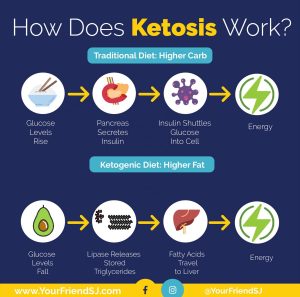Weight loss is a complex and multifaceted issue that requires a combination of various approaches to achieve sustainable results. While there is no one-size-fits-all solution to weight loss, research has shown that certain methods have proven to be more effective than others. When choosing a weight loss method, it’s essential to consider various factors such as your lifestyle, personal preferences, medical conditions, and budget.
Here are some of the most effective weight loss methods or programs:
- Caloric Restriction: One of the most fundamental principles of weight loss is consuming fewer calories than you burn. Creating a calorie deficit can be achieved through various methods, including reducing portion sizes, limiting high-calorie foods, and tracking your intake through calorie counting apps. While calorie restriction can be effective in the short term, it’s crucial to ensure you’re still getting adequate nutrition to maintain your health.
- Exercise: Regular physical activity is an essential component of any weight loss program. Exercise not only helps burn calories but also builds muscle, which can increase your metabolism and help you maintain weight loss in the long term. Aim for at least 30 minutes of moderate-intensity exercise, such as brisk walking, most days of the week.
- Diet Quality: Focusing on consuming a healthy, nutrient-dense diet can aid in weight loss and improve overall health. A diet rich in whole foods such as fruits, vegetables, lean proteins, and healthy fats can provide essential nutrients while keeping you satisfied and reducing the risk of overeating.
- Behavioral Therapy: Behavioral therapy focuses on changing unhealthy eating habits and creating a sustainable, healthy lifestyle. This approach can include setting realistic goals, identifying triggers for overeating, and developing strategies to overcome them. Behavioral therapy can be conducted through individual counseling or group programs such as Weight Watchers or Overeaters Anonymous.
- Bariatric Surgery: For individuals with severe obesity or weight-related health issues, bariatric surgery may be a viable option. These procedures work by altering the digestive system’s anatomy, reducing the amount of food that can be consumed or absorbed. While surgery can be effective in significant weight loss, it’s essential to consider the potential risks and long-term implications of the procedure.
In conclusion, weight loss requires a combination of approaches that work best for your individual needs and lifestyle. It’s essential to choose a program that emphasizes healthy habits and sustainability to achieve long-term success. Consulting with a healthcare provider or registered dietitian can help you determine the best approach for you and ensure you’re meeting your nutritional needs while achieving your weight loss goals.







Melissa Wilson
The most effective weight loss method or program is one that combines healthy eating habits and regular exercise. It is important to remember that there is no one-size-fits-all solution for weight loss, and what works for one person may not work for another.
One effective weight loss method is to focus on creating a calorie deficit, which means consuming fewer calories than you burn. This can be achieved through a combination of diet and exercise. It is important to eat a well-balanced diet that includes lean protein, fruits and vegetables, and whole grains, while limiting processed foods, sugary drinks, and foods high in saturated fat.
Regular exercise is also important for weight loss, as it helps to burn calories and build muscle. A combination of cardio and strength training exercises can help you achieve your weight loss goals. Additionally, incorporating physical activity into your daily routine, such as taking the stairs instead of the elevator or going for a walk during your lunch break, can also help increase your calorie burn.
In addition to healthy eating and regular exercise, other lifestyle changes can also be effective for weight loss. These may include getting enough sleep, managing stress levels, and avoiding smoking and excessive alcohol consumption.
It is important to approach weight loss as a long-term lifestyle change rather than a quick fix. Sustainable weight loss is achieved through consistent healthy habits rather than fad diets or extreme measures. Consultation with a healthcare professional or a registered dietitian can also be helpful in creating an individualized plan that fits your unique needs and goals.